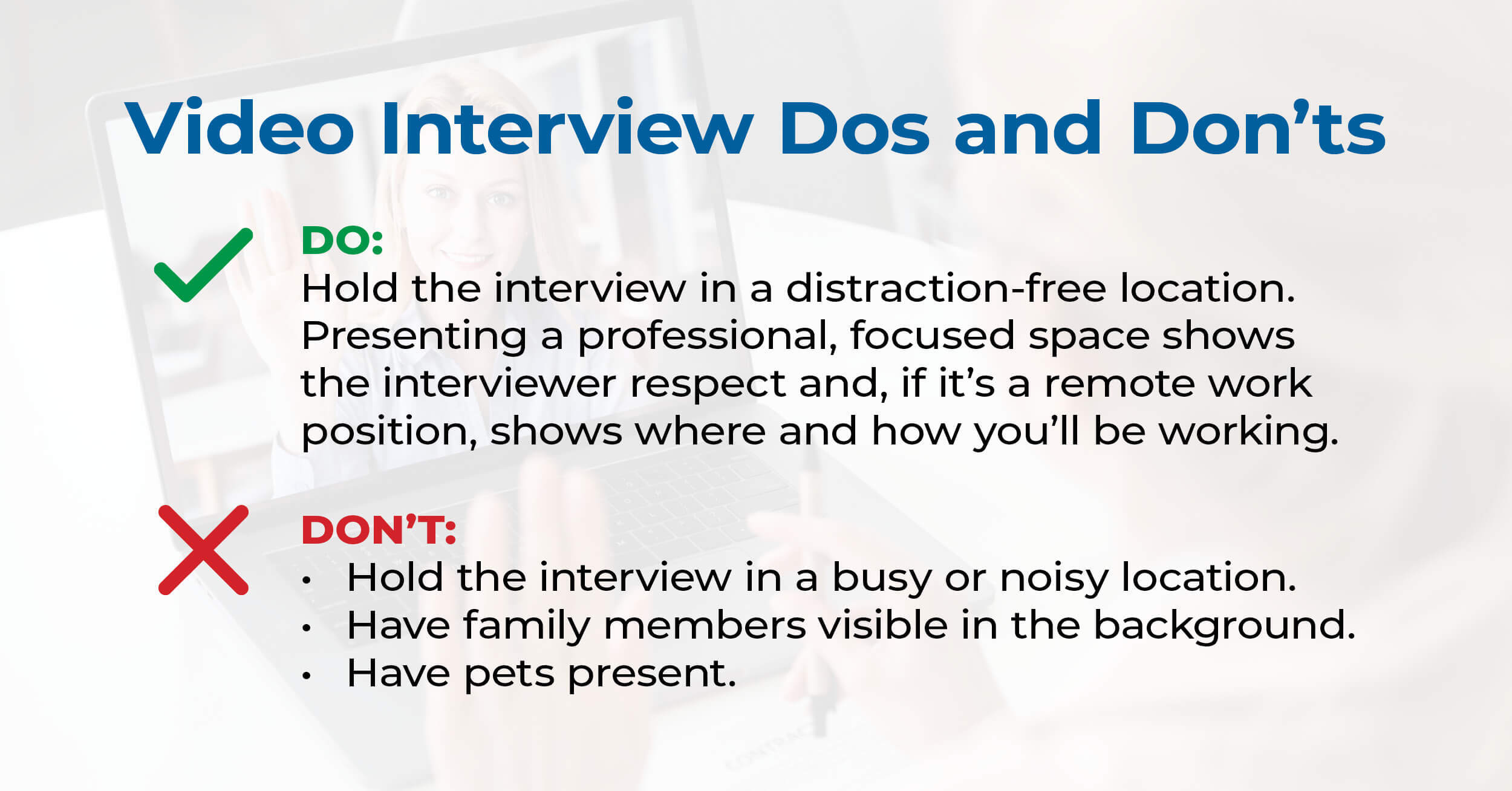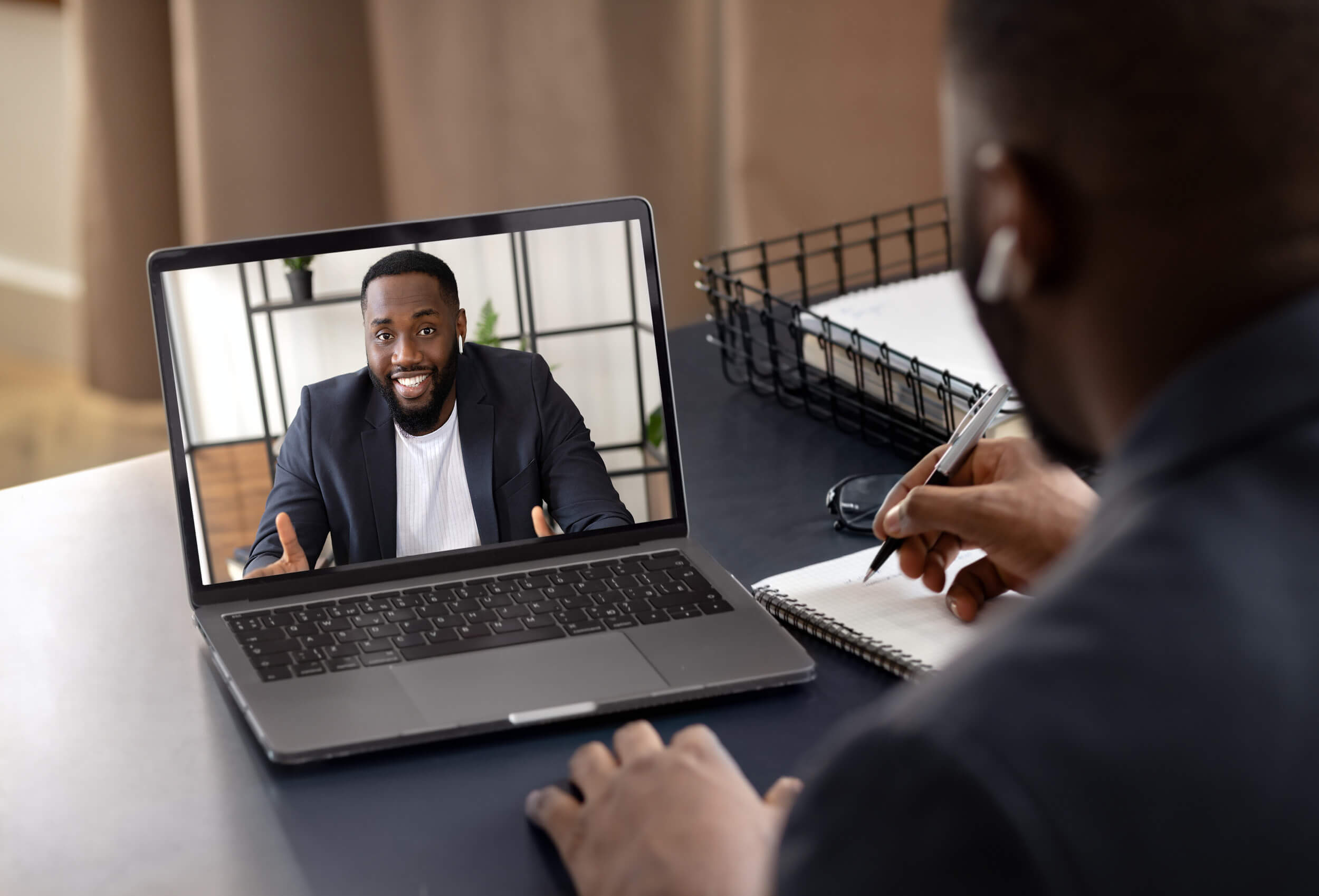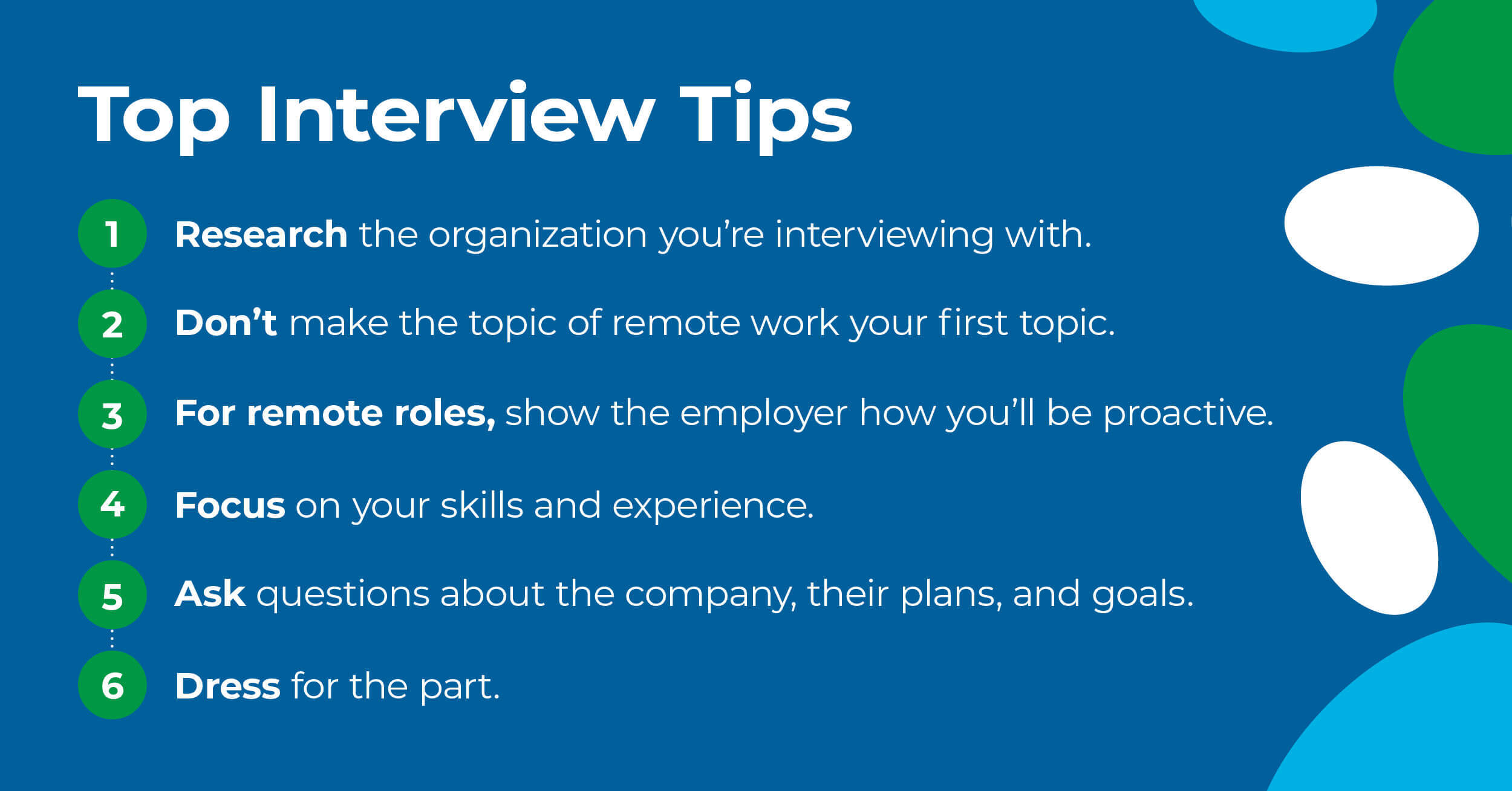
7 Tips To Help You Ace Any Job Interview
In this post-pandemic world, telephone and one-way video interviews have become the norm, which means landing that in-person interview means the employer is probably seriously interested.
Or maybe you’re planning to attend a job fair where interviews will be conducted on the spot.
Perhaps you’re not looking for a job at all, but you know brushing up on your interviewing skills won’t hurt.
Whether you're gainfully employed, looking, or contemplating a career change, it's important to always be prepared and keep your options open.
That’s why we’re thrilled to offer this comprehensive guide to acing your job interview from Anita Vitullo, owner of Staffwords Group, the learning provider of strategic workforce solutions and professional staffing services in Central New York.
1. Research the Organization You're Interviewing With
It's easy to do this. Google the company, get to know its history and successes and understand its services. This could be valuable during the interview, allowing you to bring up the company’s story, comment on their work, and congratulate them on their recent achievements.

2. Don’t Make the Topic of Remote Work Your First Topic of Conversation
Ask yourself: do you want to work remotely? In doing your research on the organization, does the job even offer a remote arrangement?
Not too long ago, companies valued team members suiting up and showing up. And they still do.
So before an interview is even scheduled, and if working remotely is on your mind, check the job description and check with the company on their flexibility and remote-work policy so that neither of you wastes the other’s time.
3. If the Employer Offers a Remote Work Environment…
If the organization offers remote work, think about this so you’re prepared in advance.
As a trade-off for the convenience of a remote work environment and fewer expenses, are you willing to take less money for the job?
If you're going to be working remotely, and in that case spending less on gas, travel time, and possibly childcare — and, most of all, gaining the work/life flexibility you want — what is the employer getting out of that?
Some employers offer lower salaries for remote employees or pay on a contract basis rather than W2, which means you would need to pay for health insurance and retirement savings on your own.
A job is a business agreement. It has to be good for both parties.
If you’re interviewing for a remote role you really want, show your value to the employer and how you’ll be proactive in your role.

4. Video Interview Dos and Don’ts
If you're going to do a one-way interview or a Zoom interview with the company, do so in a place that shows the interviewer you have a space dedicated to focus and work.
For example, during the interview, try not to have children or other family members visible in the background, or the dog or cat in view. Instead, pretend you’re at the office. Presenting a professional, focused space shows the interviewer respect and, if it’s a remote work position, shows where and how you’ll be working.

5. During the Interview, Dress for the Part
Wearing a T-Shirt, jeans, or any attire with rips or slogans may not be an appropriate direction.
You can consider what the employer usually wears — and it may be business casual for most companies today. Just remember that what you choose to wear can show respect and make a good impression. This also goes for maintaining a clean, neat, and non-distracting appearance.

6. Focus on Your Skills and Experience
An interview is a professional setting. Keep the conversation focused on the work and how you’ll excel.
Employers may ask you about yourself to get to know you better. That’s fine! But stay on track about the position you’re interviewing for. Being too open and spending too much time on your personal life may take both of you away from the main reason you’re talking: the employer wants to know if you can do the job. Keep answers about you or your personal life short and sweet and steer the conversation back to the job.
7. What Questions Should You Ask a Potential Employer?
Ask questions about the company, their business plan, and goals.
Doing this signals that you’re looking for a longer-term career path and that you may be a good fit for the company to help it grow.
Asking specific questions may also show you can drive a conversation and lead — whether that’s with a client or among the team.

Preparing for Success
Being prepared for an interview — whether in person or on a virtual call — may show a potential employer you’re equipped and ready to start Monday. Keep these tips in mind since the job you’re looking for may be around the corner and may be yours for the taking.
About StaffWorks
Staffworks is locally owned by Anita A. Vitullo, Founder & President. With 40 years of comprehensive staffing services experience, Staffworks delivers proven results for its clients and its team no matter how unique the requirements. The eight Staffworks offices provide a regional focus in Central and Southern New York, earning the confidence of some of the areas’ most prominent employers.
About Stone Ridge Residences
Since 1951, we have been “home” to Herkimer with our five affordable housing complexes: Stone Ridge Gems, Stone Ridge Flatts, Stone Ridge Orchards, Stone Ridge Mills, and Nathan Castle.

